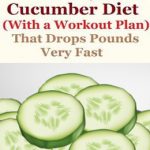Watermelon is a quintessential summer fruit – refreshing, sweet, and incredibly popular. Its high water content and appealing taste make it a favorite for hydration and enjoyment, especially during warm weather. It also packs a decent nutritional punch.
However, you might also encounter mentions of the “Watermelon Diet,” often promoted with claims of rapid weight loss and detoxification. It’s crucial to approach these claims with extreme caution. Highly restrictive plans based solely or primarily on watermelon are fad diets. They are nutritionally unbalanced, unsustainable, potentially unsafe, and do not promote long-term healthy eating habits.
This article explores the genuine health benefits of watermelon as a fruit and explains why extreme “Watermelon Diets” should be avoided, encouraging a focus on balanced, sustainable lifestyle choices instead.
What Makes Watermelon Healthy?
Watermelon, when enjoyed as part of a varied diet, offers several nutritional benefits:
- Excellent Hydration: Composed of over 90% water, watermelon is fantastic for helping you stay hydrated, which is vital for nearly every bodily function.
- Rich in Vitamins: It’s a good source of Vitamin C (important for immune function) and Vitamin A (important for eye and skin health).
- Provides Minerals: Watermelon contains minerals like potassium, which plays a role in balancing fluids and nerve signals.
- Source of Lycopene: This powerful antioxidant, responsible for watermelon’s red color, is linked to various health benefits, including heart health.
- Contains Fiber: While not extremely high, watermelon does provide some dietary fiber, which aids digestion.
- Naturally Sweet & Low-Calorie: Compared to many processed snacks and desserts, watermelon offers natural sweetness with relatively few calories per serving, making it a healthier choice for satisfying a sweet tooth in moderation.
- Nutrient-Rich Rind: Interestingly, the white part of the rind closer to the skin is edible and contains nutrients like citrulline, an amino acid. While not commonly eaten, it is nutritious.
Why Extreme Watermelon ‘Diets’ Are Problematic
Despite the health benefits of the fruit itself, diets that involve eating only watermelon (a mono-diet) or severely restricting intake to primarily watermelon for several days are highly problematic:
- Severe Calorie Restriction: Any rapid weight loss experienced on such diets is primarily due to a drastic reduction in calories and loss of water weight, not sustainable fat loss. This level of restriction is difficult to maintain and can be unhealthy.
- Nutritional Deficiencies: Eating only watermelon means missing out on essential macronutrients like protein and healthy fats, as well as a wide range of vitamins and minerals crucial for health. Protein is vital for maintaining muscle mass, especially during weight loss efforts.
- Unsustainability & Weight Regain: These diets are short-term fixes, not long-term solutions. They don’t teach healthy eating habits. Once you return to a normal diet, any weight lost (especially water weight) is typically regained quickly.
- Potential Muscle Loss: Very low-calorie diets lacking adequate protein can cause your body to break down muscle tissue for energy, which can slow down your metabolism in the long run.
- Debunking “Detox” Claims: Your body has highly efficient detoxification systems (primarily your liver and kidneys). Restrictive fruit diets do not significantly “boost” or “renew” these processes. Claims about toxins being stored in fat and released specifically through such diets are pseudoscientific oversimplifications. Eating a balanced diet supports your body’s natural functions; extreme restriction does not.
- Potential Side Effects: Relying solely on watermelon can lead to blood sugar fluctuations (as it’s primarily carbs/sugar, despite being low-calorie overall), fatigue, dizziness, and digestive issues for some.
Sensible Ways to Include Watermelon in Your Diet
Forget the extreme “diet” plans. Here’s how to enjoy watermelon as part of a healthy, balanced approach to eating:
- Refreshing Snack: Enjoy a slice or bowl of cubed watermelon on its own.
- Add to Salads: Cubed watermelon adds a sweet and juicy element to green salads (especially good with feta cheese and mint) or fruit salads.
- Blend into Smoothies: Combine watermelon with other fruits, leafy greens (like spinach), yogurt, or a scoop of protein powder for a hydrating smoothie.
- Post-Workout Hydration: Its high water content and natural sugars make it a good option for rehydrating after exercise.
- Healthier Dessert: Use it as a naturally sweet alternative to high-calorie desserts.
- Flavor Infusion: Add chunks of watermelon to your water pitcher for a subtle, refreshing flavor.
Remember to enjoy it in moderation as part of a diet that includes a wide variety of foods.
Focus on Overall Healthy Habits
Sustainable health and weight management come from consistent, balanced habits:
- Eat a Balanced Diet: Prioritize whole foods, including lean proteins, healthy fats, whole grains, and plenty of diverse fruits and vegetables (including watermelon!). Practice portion control.
- Engage in Regular Exercise: Combine cardiovascular activity with strength training.
- Stay Adequately Hydrated: Water should be your primary beverage.
- Prioritize Sufficient Sleep: Aim for 7-9 hours per night.
- Manage Stress: Find healthy coping mechanisms.
Conclusion
Watermelon is a delicious, hydrating, and nutritious fruit that can certainly be part of a healthy lifestyle. However, it is not a miracle weight loss food, and extreme diets based heavily upon it are unhealthy, nutritionally incomplete, and unsustainable fad diets that should be avoided. Instead of searching for quick fixes, focus on building balanced, long-term habits that support your overall well-being. Enjoy watermelon for the refreshing treat it is within the context of a varied and nourishing diet.



